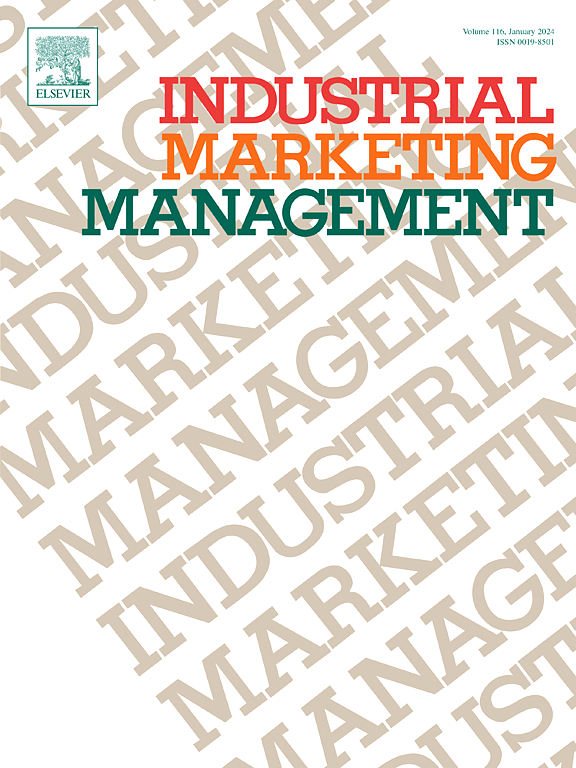是什么让本地零售商青睐跨国品牌:来自新兴市场跨国品牌零售商的证据
IF 7.5
1区 管理学
Q1 BUSINESS
引用次数: 0
摘要
这项研究促进了我们对跨国企业(MNEs)如何在新兴市场培养当地零售商承诺的理解。使用中国B2B消费电子行业153对品牌零售商对的二元数据集,我们测试了一个概念框架,研究关系强度、相互知识获取和知识不对称如何影响零售商对跨国品牌的承诺。研究结果证实,强大的品牌-零售商关系、零售商获得的品牌知识和品牌获得的零售商知识都显著提高了零售商的承诺。此外,研究结果支持相互知识交换的调节作用,并证实知识不对称显著影响承诺水平:品牌的知识优势增加零售商的承诺,而零售商的知识优势降低零售商的承诺。因此,本研究丰富了B2B和国际营销文献,表明管理新兴市场的零售商承诺不仅仅是建立牢固的关系,而是在相互依赖的渠道结构中对称和不对称地战略性地利用和调整知识资源。本文章由计算机程序翻译,如有差异,请以英文原文为准。
What makes local retailers commit to multinational brands: Evidence from multinational brand-retailer dyads in emerging markets
This study advances our understanding of how multinational enterprises (MNEs) can foster local retailer commitment in emerging markets. Using a dyadic dataset of 153 brand-retailer pairs in China's B2B consumer electronics sector, we tested a conceptual framework examining how relationship strength, mutual knowledge acquisition, and knowledge asymmetries affect retailers' commitment to MNE brands. The findings confirm that strong brand-retailer relationships, brand knowledge acquired by retailers, and retailer knowledge acquired by brands all significantly enhance retailer commitment. Furthermore, the results support the moderating role of mutual knowledge exchange and confirm that knowledge asymmetries significantly shape commitment levels: a brand's knowledge advantage increases retailer commitment, while a retailer's knowledge advantage reduces it. This study thus enriches the B2B and international marketing literatures by showing that managing retailer commitment in emerging markets is not just about building strong relationships, but about strategically leveraging and aligning knowledge resources, both symmetrically and asymmetrically, within interdependent channel structures.
求助全文
通过发布文献求助,成功后即可免费获取论文全文。
去求助
来源期刊

Industrial Marketing Management
Multiple-
CiteScore
17.30
自引率
20.40%
发文量
255
期刊介绍:
Industrial Marketing Management delivers theoretical, empirical, and case-based research tailored to the requirements of marketing scholars and practitioners engaged in industrial and business-to-business markets. With an editorial review board comprising prominent international scholars and practitioners, the journal ensures a harmonious blend of theory and practical applications in all articles. Scholars from North America, Europe, Australia/New Zealand, Asia, and various global regions contribute the latest findings to enhance the effectiveness and efficiency of industrial markets. This holistic approach keeps readers informed with the most timely data and contemporary insights essential for informed marketing decisions and strategies in global industrial and business-to-business markets.
 求助内容:
求助内容: 应助结果提醒方式:
应助结果提醒方式:


